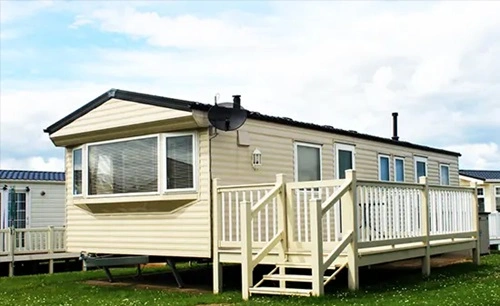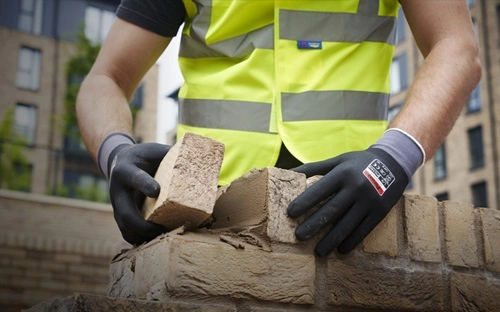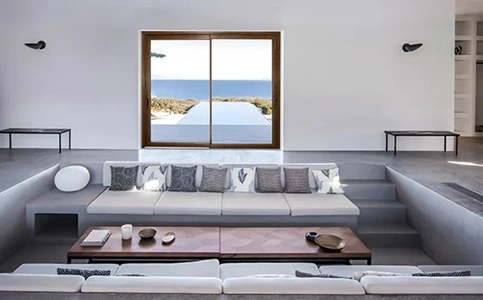Mobile homes, also known as manufactured homes, are a popular housing option for many people due to their affordability, flexibility, and modern amenities. These homes are built in factories and transported to a specific location, such as a private lot or a mobile home park. Over the years, advancements in construction techniques and design have improved the quality and aesthetics of mobile homes, making them a viable alternative to traditional housing.
However, while mobile homes offer unique advantages, they also come with certain limitations that potential buyers should consider. This article explores the pros and cons of mobile homes, helping you decide if this type of housing is right for you.
What Are Mobile Homes?

Mobile homes are prefabricated structures designed to be transported to a location where they can be used as permanent residences. Unlike traditional homes, which are built on-site, mobile homes are constructed in a factory and delivered in one or more sections. They come in three main sizes:
- Single-Wide: Narrow and long, typically offering 1-2 bedrooms.
- Double-Wide: Consists of two sections joined together, providing more space and amenities.
- Triple-Wide: The largest type, often comparable to a traditional house in terms of space and layout.
Mobile homes are often placed in mobile home parks or on privately owned land. They are governed by specific building codes and regulations, such as the HUD Code in the United States, which ensures safety and quality standards.
The Pros of Mobile Homes
1. Affordability
One of the biggest advantages of mobile homes is their cost. Mobile homes are significantly cheaper than traditional houses, making homeownership more accessible for people on a budget. According to the U.S. Census Bureau, the average cost of a new manufactured home is often less than half the price per square foot of a site-built home.
2. Flexibility
Mobile homes offer flexibility in terms of location. Owners can place their homes on private land, in a mobile home park, or in a rural area. Additionally, many mobile homes can be relocated if the owner decides to move, though this process can be costly and complex.
3. Quick Construction and Installation
Since mobile homes are built in factories, they can be constructed and installed much faster than traditional homes. This allows buyers to move into their new homes sooner, making them an excellent option for those who need housing quickly.
4. Lower Property Taxes
Mobile homes often have lower property taxes compared to site-built homes. This is because they are typically classified as personal property rather than real estate, which can result in significant tax savings.
5. Customization Options
Modern mobile homes offer a wide range of customization options, from floor plans to finishes. Buyers can choose from various layouts, materials, and features, creating a home that suits their preferences and needs.
6. Energy Efficiency
Many newer mobile homes are built with energy-efficient materials and appliances, helping homeowners save on utility bills. Features such as better insulation, energy-efficient windows, and modern HVAC systems make these homes more environmentally friendly.
7. Community Living
For those who choose to live in mobile home parks, the sense of community can be a major benefit. Many parks offer amenities such as swimming pools, playgrounds, and clubhouses, as well as opportunities for socializing with neighbors.
8. Low Maintenance
Mobile homes require less maintenance than older traditional homes. Since they are built using modern materials and techniques, they often come with warranties for structural elements, appliances, and systems.
9. Affordable Housing Solution
Mobile homes are an ideal solution for affordable housing in areas with high real estate prices. They provide a cost-effective way for individuals and families to own property without overextending their budgets.
10. Downsizing Opportunity
For retirees or those looking to simplify their lives, mobile homes offer an excellent opportunity to downsize. Their compact design and affordability make them a popular choice for people seeking a minimalist lifestyle.
The Cons of Mobile Homes
1. Depreciation in Value
Unlike traditional homes, which often appreciate in value over time, mobile homes tend to depreciate. They are typically considered personal property rather than real estate, similar to vehicles, which can lead to a decrease in resale value.
2. Land Ownership Challenges
If you don’t own the land where your mobile home is placed, you may have to pay rent to a mobile home park. This adds an ongoing expense and could lead to potential issues if the park owner raises fees or decides to sell the property.
3. Limited Financing Options
Financing a mobile home can be more challenging than financing a traditional home. Many lenders view mobile homes as personal property, which means higher interest rates and shorter loan terms compared to conventional mortgages.
4. Durability Concerns
While modern mobile homes are built to higher standards, they may not be as durable as site-built homes, especially in extreme weather conditions. Older mobile homes, in particular, may not meet current safety standards.
5. Relocation Costs
Although mobile homes are designed to be movable, relocating them can be expensive and complex. The process involves permits, transportation costs, and potential damage to the home during the move.
6. Stigma and Perception
Mobile homes often carry a social stigma, with some people viewing them as lower-quality housing. This perception can impact the homeowner’s pride in ownership and even affect resale opportunities.
7. Zoning Restrictions
In some areas, zoning laws and regulations may restrict where mobile homes can be placed. This can limit your options and increase the complexity of finding a suitable location.
8. Park Rules and Regulations
If you live in a mobile home park, you must adhere to the park’s rules and regulations, which can sometimes feel restrictive. These rules may cover everything from exterior maintenance to pet ownership.
9. Lack of Longevity
Mobile homes may have a shorter lifespan compared to traditional homes. While modern materials and construction techniques have improved durability, they still may not last as long as well-built site-built houses.
10. Potential for Higher Insurance Costs
Insurance for mobile homes can be more expensive than for traditional homes due to perceived risks, such as susceptibility to weather damage or fire. Insurance premiums may vary depending on the home’s location and construction quality.
Who Should Consider a Mobile Home?
Mobile homes can be an excellent choice for:
- First-Time Homebuyers: Those looking for affordable housing without the high costs of traditional homes.
- Retirees: Individuals seeking to downsize or live in a retirement-friendly community.
- Minimalists: People who prefer smaller, simpler living spaces.
- Budget-Conscious Buyers: Those who want to own a home without overextending financially.
- Temporary Residents: Workers or families in need of temporary but comfortable housing.
However, they may not be suitable for:
- Investors: Those seeking properties that appreciate in value.
- Luxury Homebuyers: Individuals looking for high-end, custom-built homes.
- People in Extreme Weather Areas: Locations prone to hurricanes, tornadoes, or floods may pose challenges for mobile home durability.
Tips for Buying a Mobile Home
- Research Builders and Models: Look for reputable manufacturers that meet safety and quality standards.
- Consider Land Ownership: Decide whether you want to buy or rent the land for your mobile home.
- Inspect the Home: Conduct a thorough inspection, especially for older mobile homes, to identify potential issues.
- Understand Financing Options: Explore lenders that specialize in mobile home loans and compare terms.
- Check Zoning Laws: Ensure the location you choose permits mobile homes and fits your lifestyle needs.
Conclusion
Mobile homes offer a cost-effective and flexible housing option for a variety of lifestyles and budgets. With modern designs and improved construction standards, they provide comfortable and functional living spaces. However, potential buyers must consider challenges such as depreciation, financing difficulties, and zoning restrictions.
By weighing the pros and cons of mobile homes, you can make an informed decision about whether this type of housing aligns with your needs and goals. For many, mobile homes represent an affordable and practical path to homeownership, while for others, they may serve as a stepping stone to more permanent housing solutions



